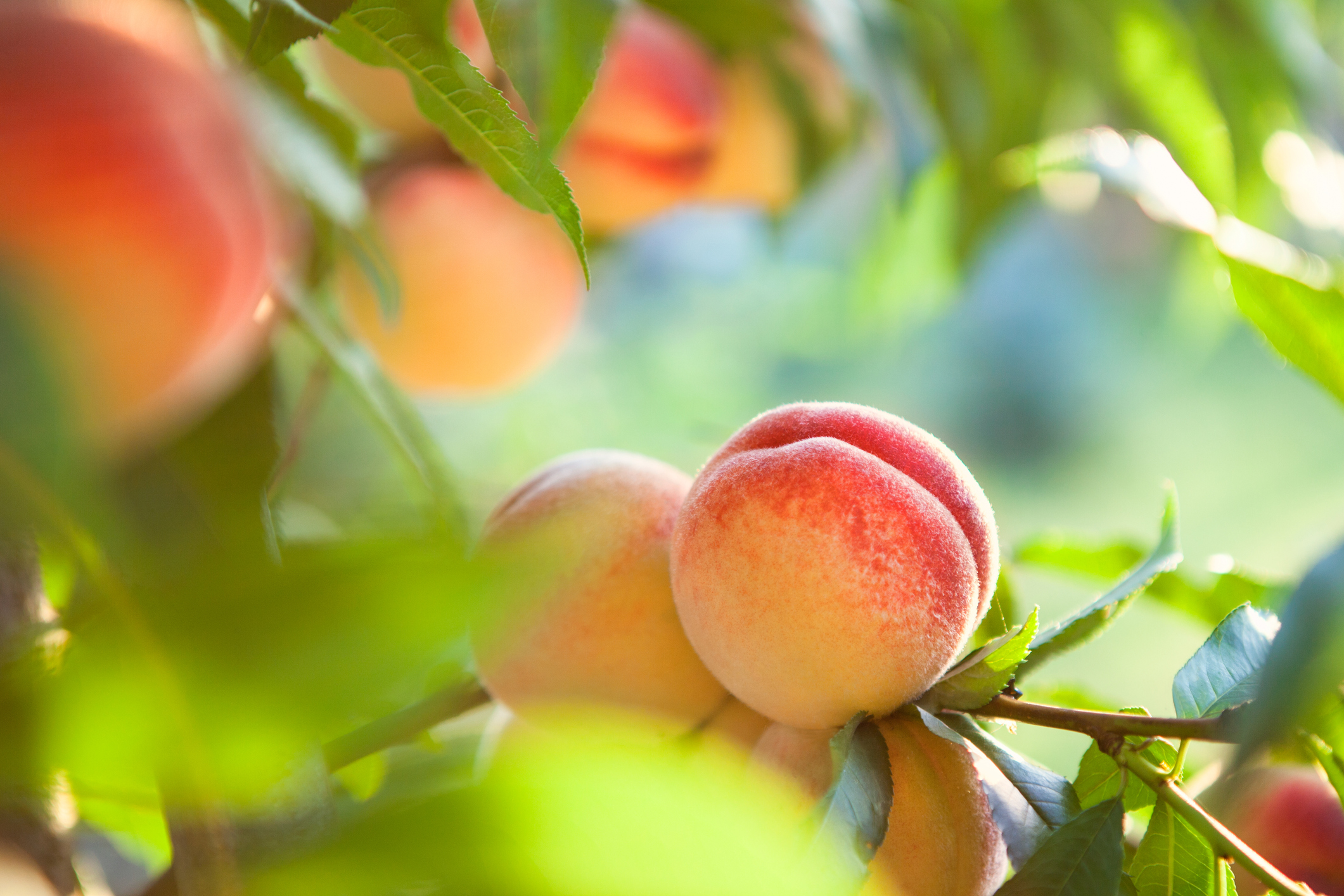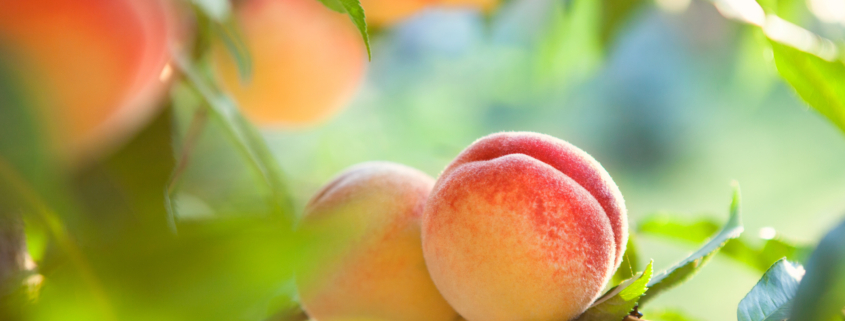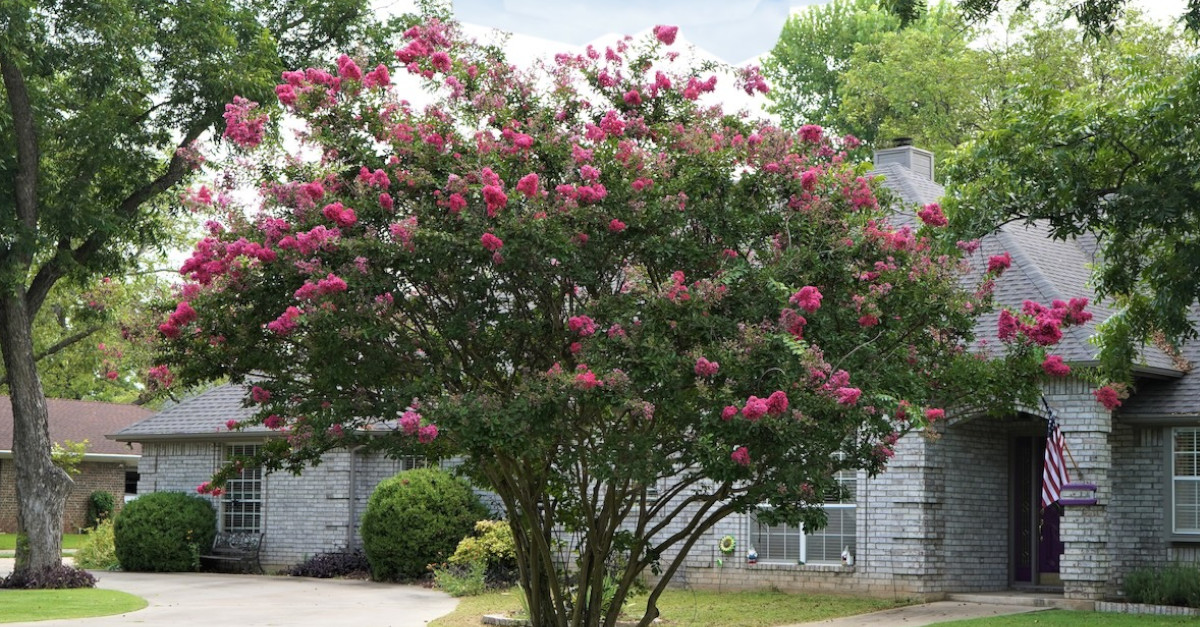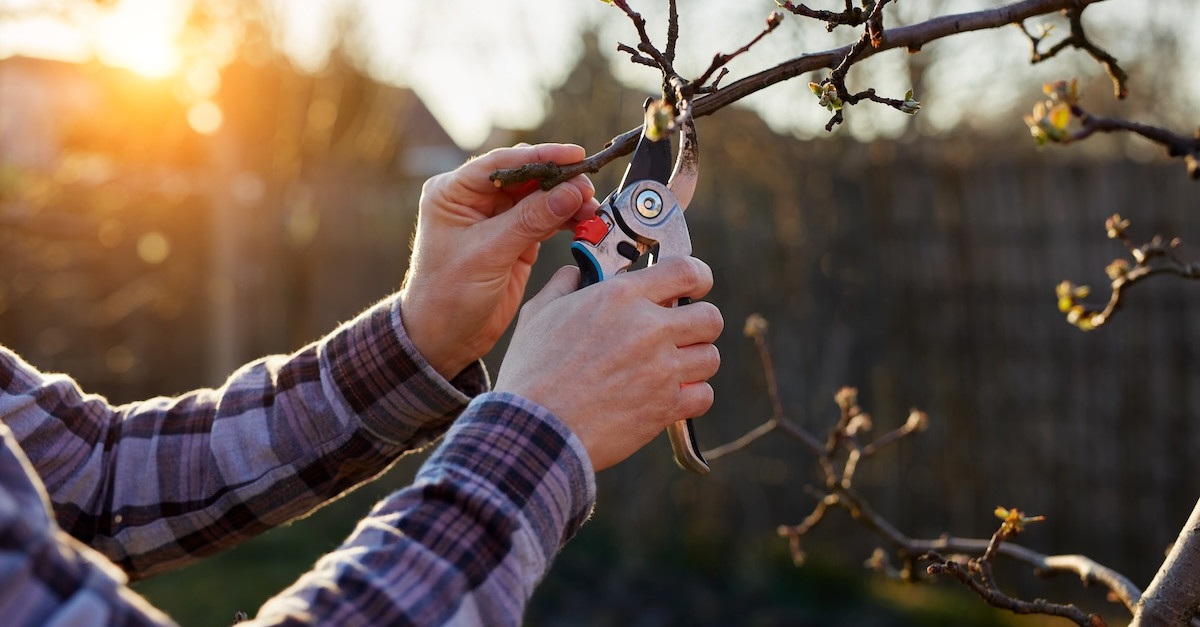Go Nuts for Fruit Trees (You’ll Find Them Very A-peeling)
Trees aren’t just bark-clad beauties.
The benefits of trees range from shading your home from the sun and protecting your privacy to providing the needed infrastructure for a tree swing.
Some trees are extra special, because these trees also feed us with the fruits of their arboreal labors.
Be a Peach and Pear Down Your Fruit Tree Choices
Atlanta Metro winters are unkind to citrus trees, and the weather says a hard no to avocados. Cherry trees are popular for their spring blossoms, however many popular species and cultivars are short-lived in the metro Atlanta environment.
The good news? Several fruit trees do quite well on the Georgia Piedmont.
Asian Pear (Pyrus pyrifolia). Asian pear trees thrive throughout the state and are delicious eating too. Please don’t plant a Bradford pear tree though. An ornamental import, it is cross-pollinating with and weakening hardier species. Ask us to tell you more about it if you’re ready for a rant.
Peach (Prunus persica). Show some State of Georgia fruit pride with a peach tree or three. Originally native to northwest China, peach trees thrive in Georgia. You’ll make magical summer memories biting into ripe peaches on hot summer days.
Apple (Malus domestica). Many of the better known North American varieties don’t do well in southern Georgia, but here in Metro Atlanta they grow just fine. The UGA Extension recommends varieties such as Ginger Gold, Gala, and Granny Smith.
American Persimmon (Diospyros virginiana). Branch out to some of the less common fruits, such as the American persimmon with its bright orange-red fruits. (You’ll need at least two, one male and one female, if you want them to fruit.)
Almond (Prunus dulcis). Show off at your next trivia night when you’re the one who knows that almonds are not nuts. They’re actually fruits closely related to the peach, and they grow well in similar conditions.
Go Nuts for Nut Trees
Speaking of nuts though, if you’re looking for trees that provide healthy treats, don’t stop at fruit trees. Nut trees are the original high-protein choice.
Pick a pecan (Carya illinoinensis). Georgia may promote itself as the Peach State and benefit from the peach emoji’s popularity, but agricultural numbers tell a different story.
Measured by crop value, we really ought to be the Pecan State. The numbers aren’t even close.
According to an article in Growing America, “Pecans now account for nearly half of the value of Georgia’s fruit and nut crop, while peaches are only 6.8 percent.”
Pecan trees do well throughout most of Georgia, with the exception of the North Georgia mountains. The UGA Extension suggests several excellent cultivars for home and backyard orchards, from Elliot and Excel to Gloria Grande and Gafford. They also offer some excellent advice on initial care of new pecan tree plantings.
Choose a chestnut (Castanea spp.). The story of the American chestnut’s (Castanea dentata) demise is one of the great tragedies in North American ecology. There is still some hope of reintroducing it, genetically engineered to be resistant to the blight that wiped it out.
Until then, the Chinese chestnut (Castanea mollissima) does well in most of Georgia, producing delicious nuts that you can roast on an open fire. (You can roast them in your oven too.)
Black walnut for the win (Juglans nigra). Black walnut trees are prized most for the beautiful hardwood lumber they provide, but they also produce tasty nuts. Their husks and hard shells are tough to crack, but the meat inside is worth the work.
Going nuts trying to decide what fruit or nut trees to plant? We love talking about trees and would be happy to help you choose or beautify and prune your existing trees for maximum curb appeal. Reach out to us online or give us a call at 404.252.6448.










